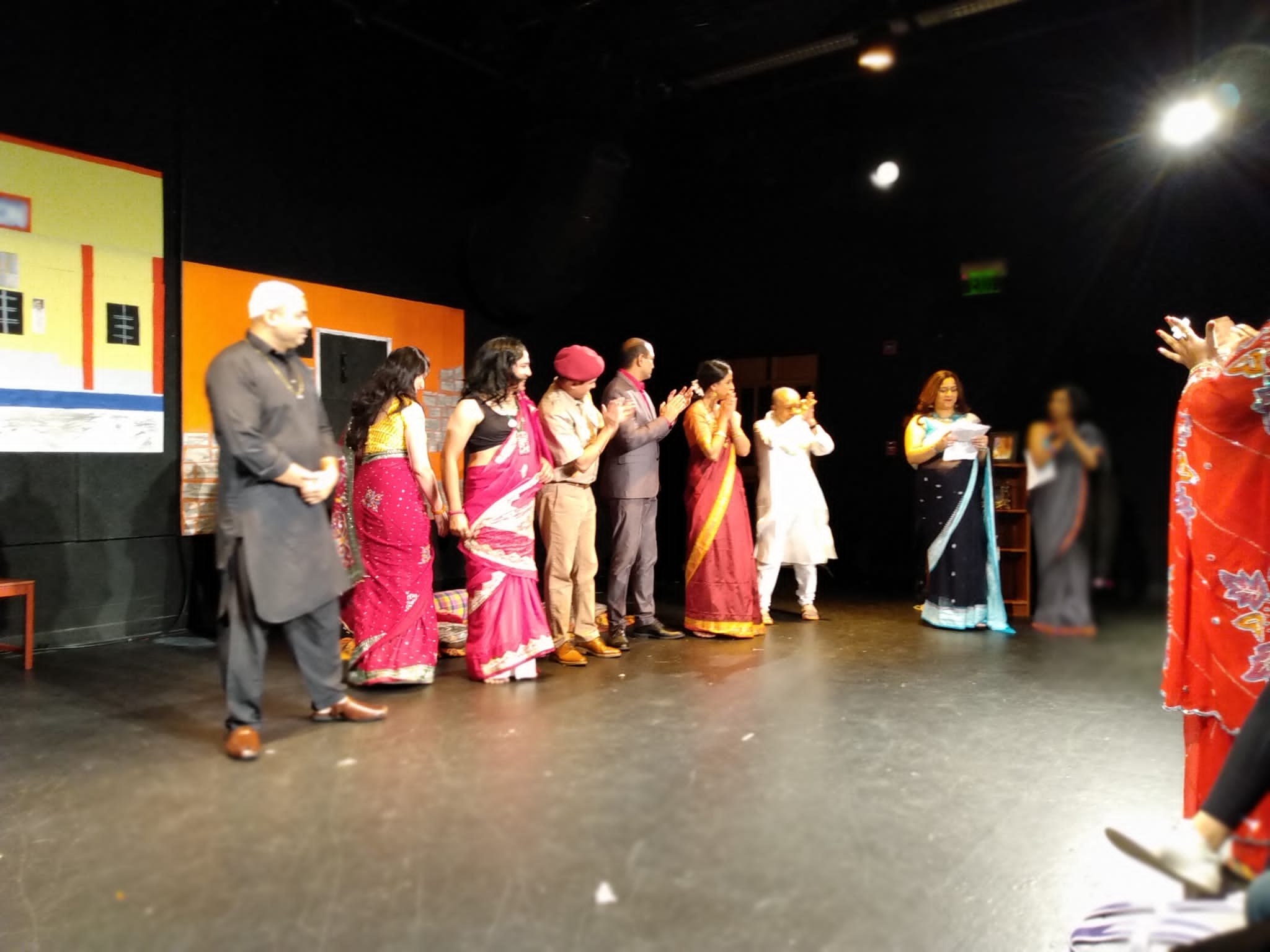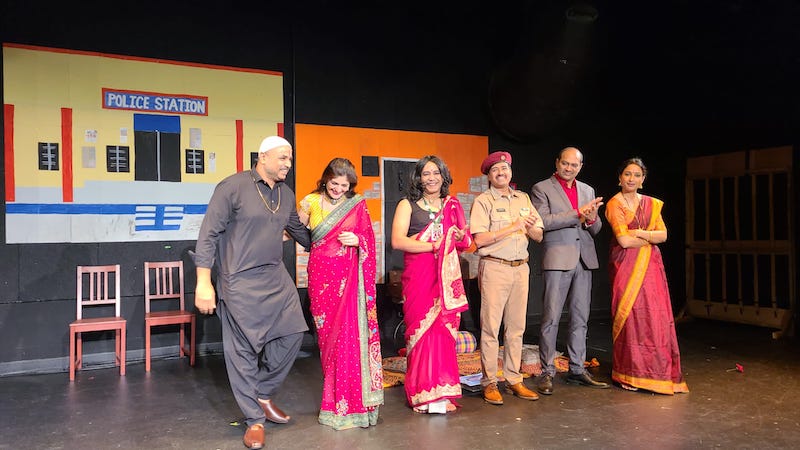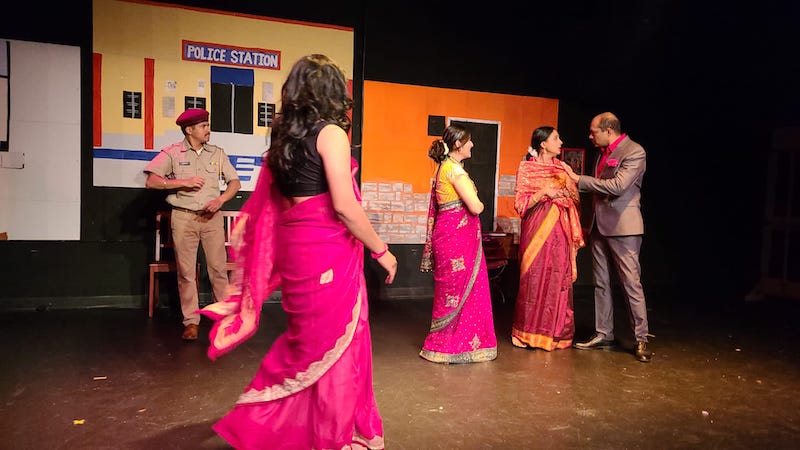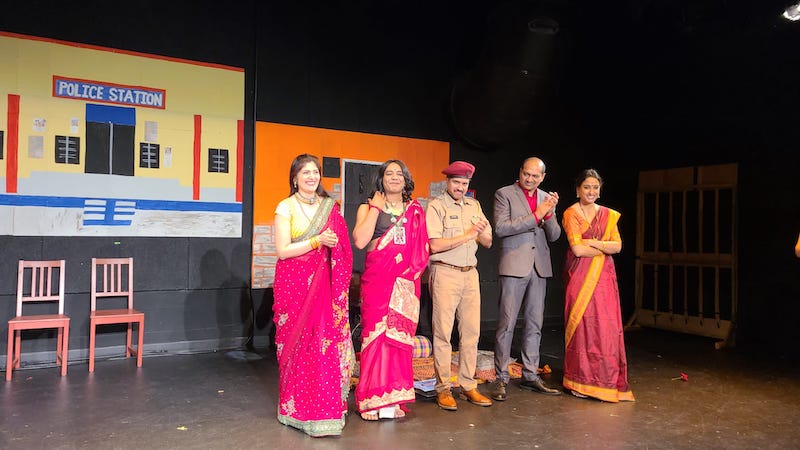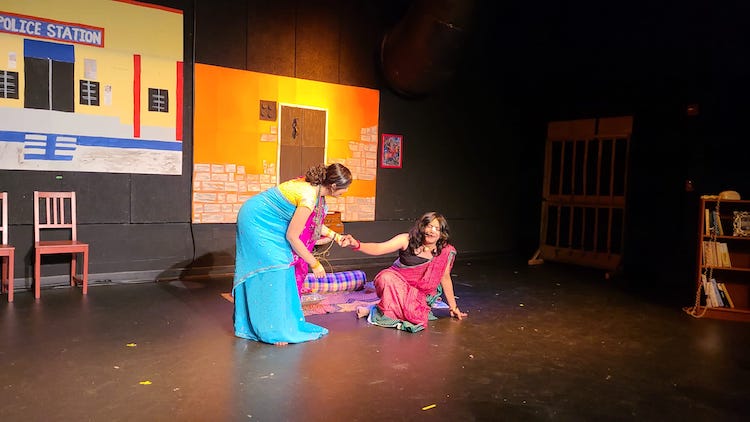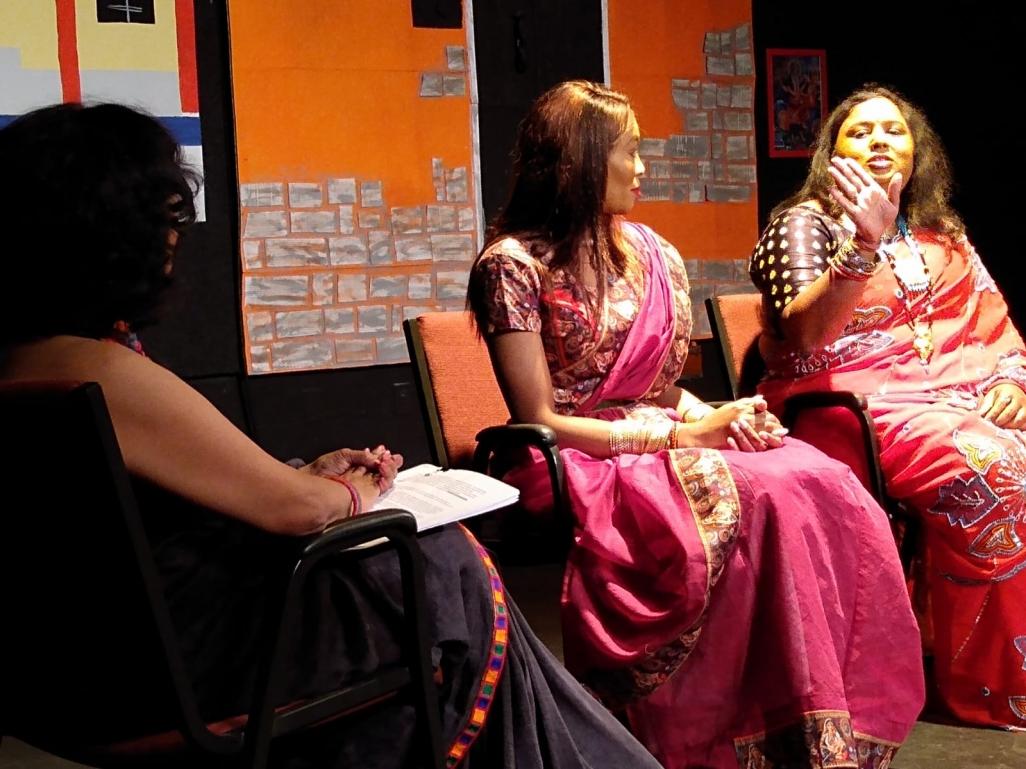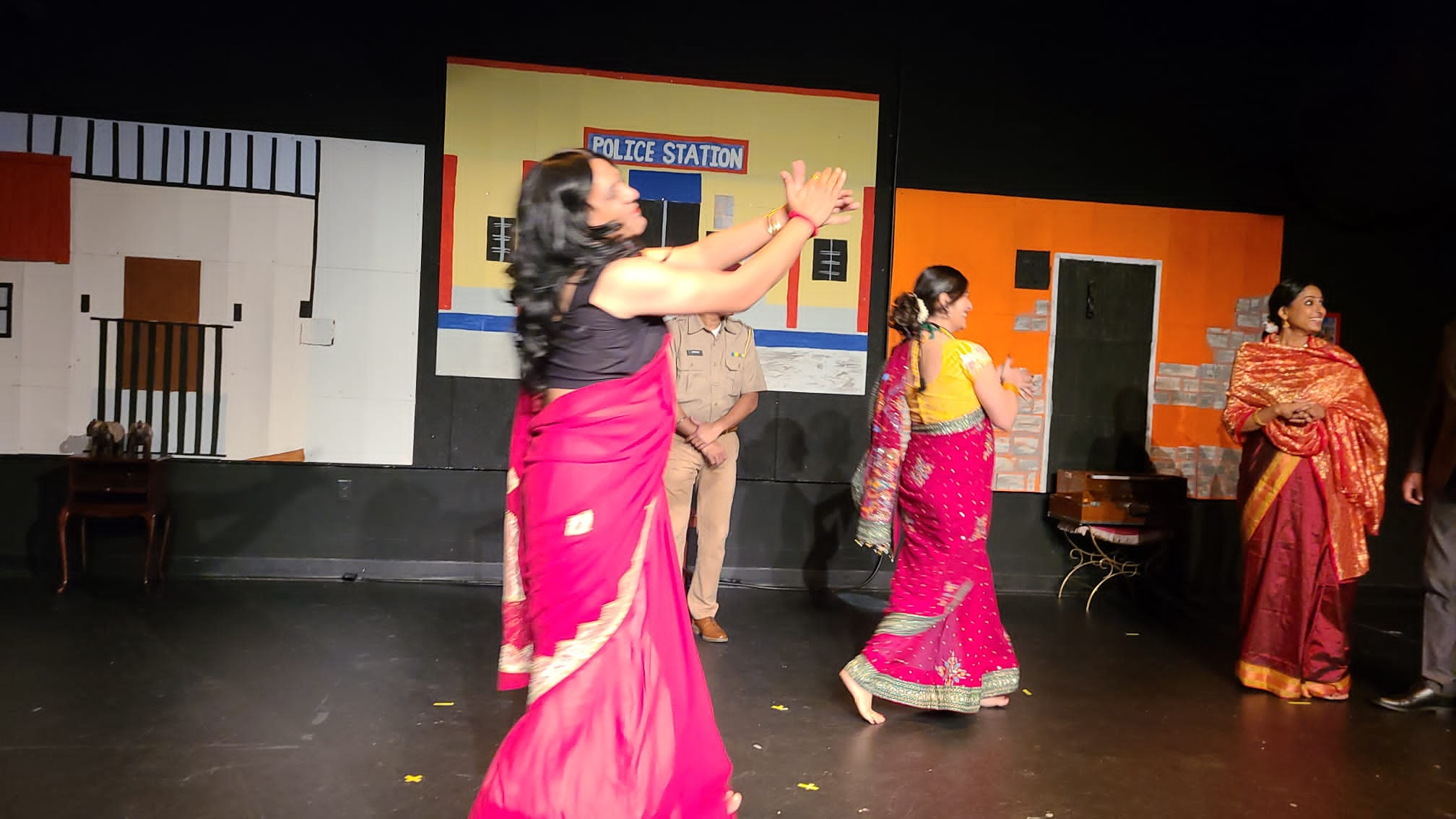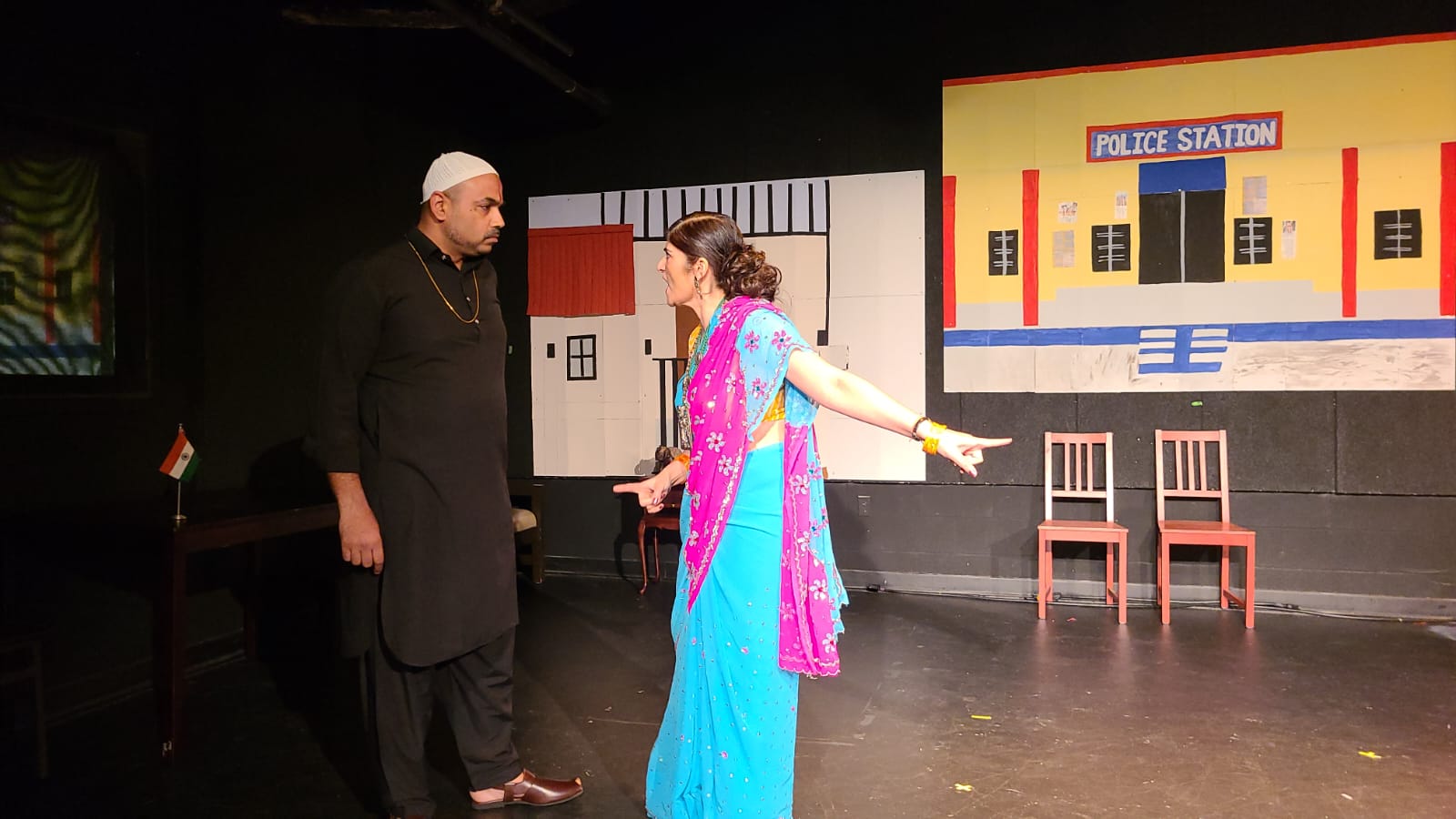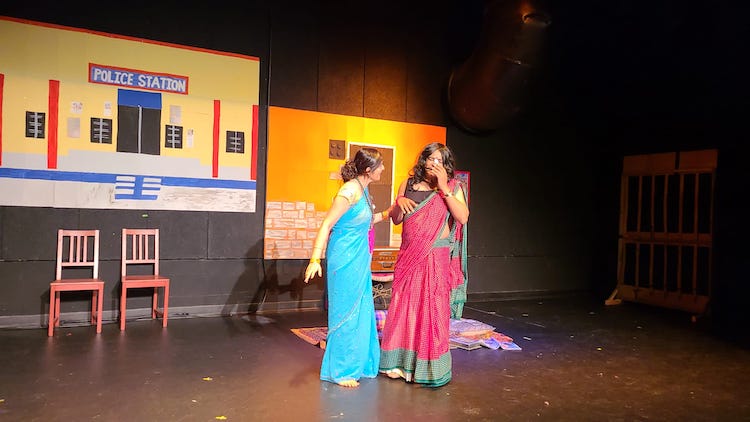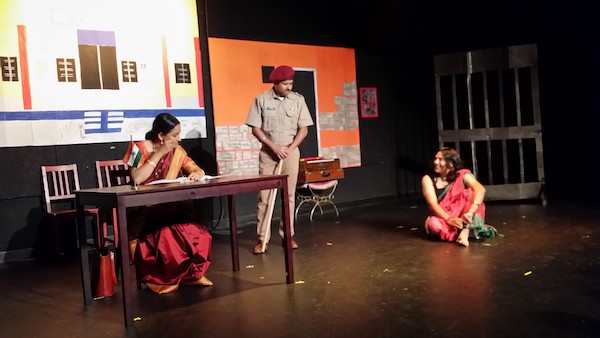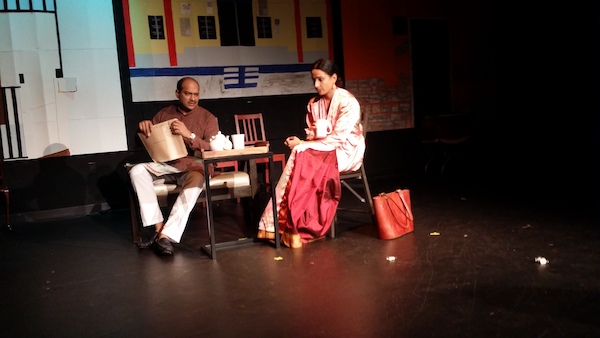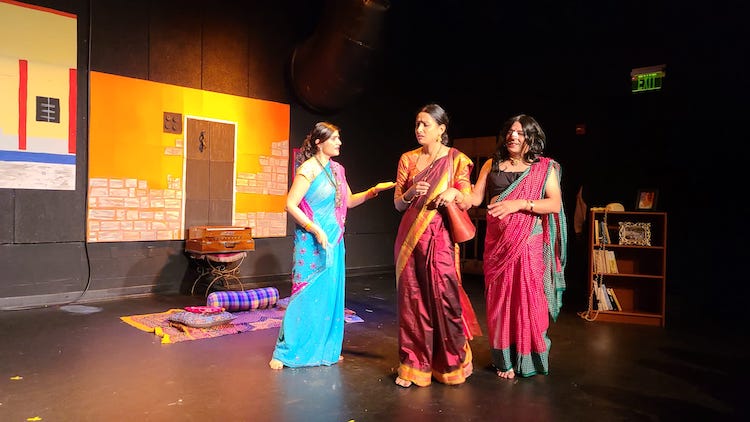Contribute
| SETU: Seven Steps Around The Fire |
Geetha Patil
11/14/2022
SETU (meaning bridge), a non-profit theater group in the Boston area, presented four shows of a thought provoking and emotive play ‘Seven Steps Around the Fire’ written by a well-known Indian director, actor, playwright, writer and Sahitya Akademi Award winner, Mahesh Dattani. The shows were scheduled for Friday, Nov 11, and Sunday, Nov 13, with one show a day and Saturday, Nov 12 with two consecutive shows. Houseful audiences watched the drama with full inquisitiveness and dynamically participated in the panel discussion. Dattani a Bengaluru born to a Gujarati parents wrote his first full-length play, Where There's a Will, and since 1995 and thereafter, he wrote many such plays as Final Solutions, Dance Like a Man, Bravely Fought the Queen, On a Muggy Night in Mumbai, Tara, Thirty Days in September, The Big Fat City and many other plays. He also directed his first film Mango Souffle, adapted from one of his plays. He also wrote and directed the movie Morning Raaga. Dattani appeared as a guest on the podcast, The Literary City with Ramjee Chandran. He is the first playwright in English to be awarded the Sahitya Akademi Award. Eminent directors like Arvind Gaur, Alyque Padamsee and Lillete Dubey have directed his plays. The main plot of the play, ‘Seven Steps Around the Fire’ revolves around the central character of Uma Rao, a Ph. D. scholar in Sociology, the daughter of a Vice-Chancellor of Bangalore University and the wife of a Superintendent of Police, Suresh Rao and her enquiry about the murder of Kamala. Uma, uses rather unconventional means and uncovers the hushed up truth behind a murder in the city's Hijara community. This play dramatizes her investigation and narrates Hijara’s origin, their identity crisis, their social exclusion, and the plight of this abandoned gender who face discrimination in every step of their life. The play begins with wedding mantras and the burning scene of Kamala. The settings of the play included: the office of the Superintendent of Police where Uma meets Anarkali; Uma’s house and her conversations with her husband; Uma’s visit to her father’s house; the living room of Champa the head of the Hijaras who Uma meets; the Minister’s residence where Subbu’s suicide takes place and everyone comes to know about Subbu and Kamala’s marriage; at the end, Suresh Rao accepts before Uma that there is no evidence or proof against Anarkali. Moreover, they arrested her only as a formality to close the case. The play ends with Uma’s disappointment and a big sigh! The use of the light and sound effect in the play was very effective. Deven Atnoor and Prateek Paul made an effort to use appropriate sounds and light to make scenes of the play real and every effective. Soundtrack of music and singing of Hijaras and their loud clapping of hands were seemed very genuine. The play presented to the audiences many issues to think about like the plight of eunuchs in the society, man’s inability to accept his weakness as Suresh Rao rejects to go to a doctor for testing, how the powerful section of the society exploits the weak, how police act as puppets in the hand of powerful people etc. This play succeeded in hitting the dogma and superstitions of Indian society. The play was followed by a panel discussion on the topic, ‘Trans genders globally and Indian Hijaras.’ California based Indian origin transgender panelists, Anjali Rimi, and Lana Patel talked about their own lives’ journey and challenges they faced, and how they overcame those and currently, how they are helping their transgender community in US and India through their organization Parivar’s educational, socio-economic, and vocational and health programs. Jayanti Bandyopadhyay moderated the panel discussion very diligently. Audiences not only listened to them compassionately and caringly but also showed their love and support to them. Subrata Das did a wonderful direction and fantastic casting of the play. Mukta Munjal and Jayanti Bandyopadhyay were the master of ceremony. The program was ended with spicy Samosas and hot tea for all the audiences. SETU selectively produces plays in English to project the ways of life in India in a global context. It tries to highlight India’s social, political and economic scenarios from the past and the present. SETU attempts to present from folk theater to musicals to modern drama forms in the contemporary context and, in the process, create a better appreciation of India’s heritage and culture. For their upcoming event’s information, please visit: www.setu.us
You may also access this article through our web-site http://www.lokvani.com/
